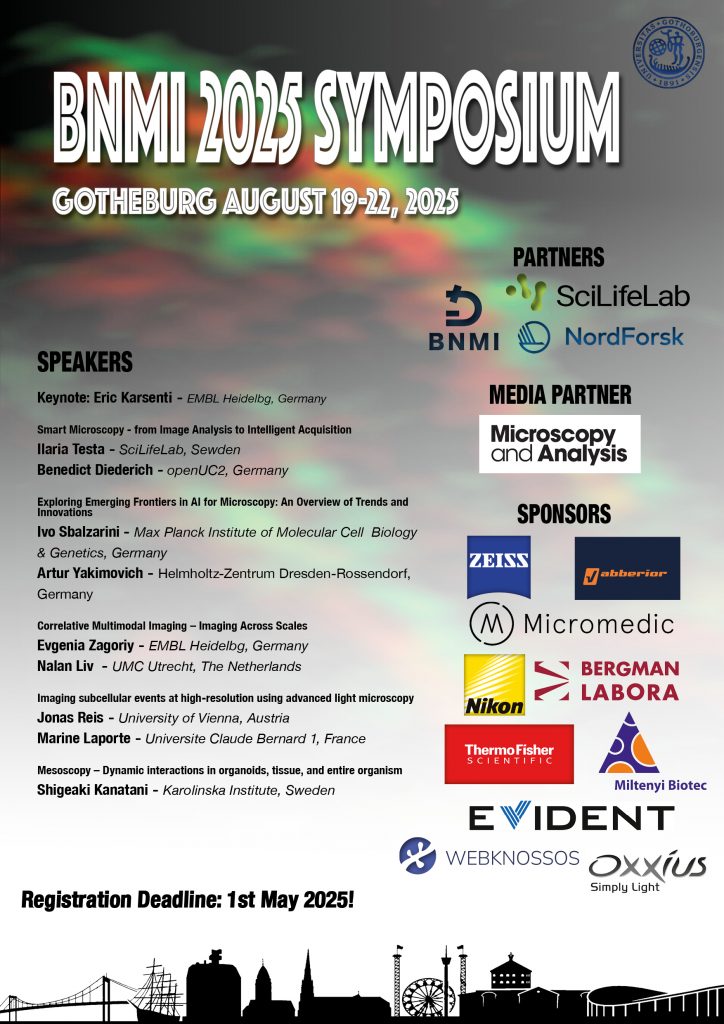
BNMI 2025

NMI events and announcements

High Speed Multiphoton Imaging of Dynamic Processes In Vivo

11-13 February 2025
This course covers lectures and practical demonstrations in SEM and TEM techniques. The contents include principles of electron microscopy, specimen preparation, cryo-electron microscopy and correlative light-electron microscopy. The main focus will be on imaging biological samples, but the course may also be suitable for material scientists interested in high-resolution electron microscopy.
Lectures at the KBC Building and laboratory demonstrations at UCEM, Umeå University, Umeå
Deadline for registration: 28 January 2025
Contact email: nils.hauff@umu.se
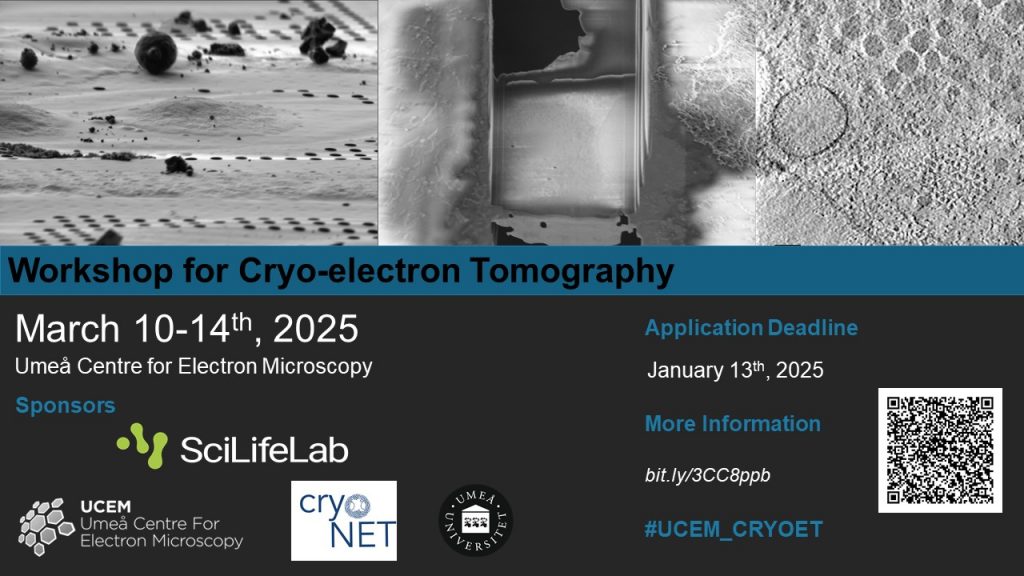
Time of event: 10-14 March 2025
Location: UCEM facility (EM-building) and Chemical Biological Centre (KBC) building, Umeå University, Linnaeus väg 6, Umeå
Deadline for registration: 13 January 2025
Short description: Cryo-electron tomography (cryo-ET) is a powerful structural technique. Its power comes from its versatility to study biological systems in vitro or in situ, i.e. within cells or tissue. It has the ability to reach uncharted regions in biological systems at high resolution. Advancements in microscopes, cameras, and computation make it now possible to determine sub-10 Å 3-dimensional structures of molecules directly within cells.
This four-and-a-half-day workshop will cover cryo-ET workflows from sample preparation on EM grids to data processing and analysis. The workshop will be a mixture of lectures and practical sessions. Participants will get hands-on experience in sample preparation on EM grids (micropatterning), sample freezing (plunge freezing and high-pressure freezing), cryo-correlative light and electron microscopy (cryo-CLEM), cryo-focused ion beam milling (cryo-FIB), cryo-TEM tiltseries data collection, and data processing and analysis (MotionCor2, IMOD, Dynamo).
It is compulsory that applicants have previous cryo-EM experience either with single-particle or already with cryo-tomography.
This workshop is supported by SciLifeLab, CryoNET and Umeå University and organized by the Umeå Centre for Electron Microscopy (UCEM).
Contact email: erin.schexnaydre@umu.se
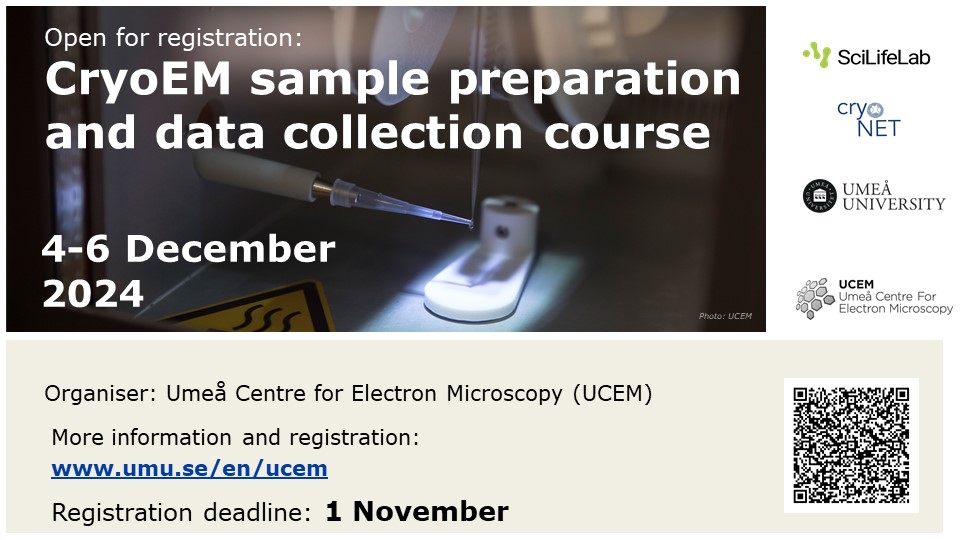
The purpose of the course is to prepare and train cryoEM facility users in sample preparation methods, introduce users to the image data acquisition workflow, expand knowledge about cryoEM methods among researchers and show that everyone can learn how to use cryoEM for structural biology.
The course is open for facility users or potential facility users, such as PhD students, postdocs, and researchers within the life sciences who are curious and will profit from cryoEM skills. Swedish and international course participants are welcome. To attend, the course participants should be familiar with electron microscopy and structural biology.
Time of event: 4-6 December 2024
Location: UCEM and Chemical Biological Centre (KBC) Building, Umeå University, Linnaeus väg 6, Umeå
Deadline for registration: 1 November 2024
Weblink: https://www.umu.se/en/research/infrastructure/medicinska-fakulteten/u/umea-centre-for-electron-microscopy-ucem/courses-workshops-and-training/cryoem-course-2024/
Contact email: sara.sandin@umu.se, tanvir.shaikh@umu.se
This course is supported by SciLifeLab, CryoNET and Umeå University and organized by the Umeå Centre for Electron Microscopy (UCEM).
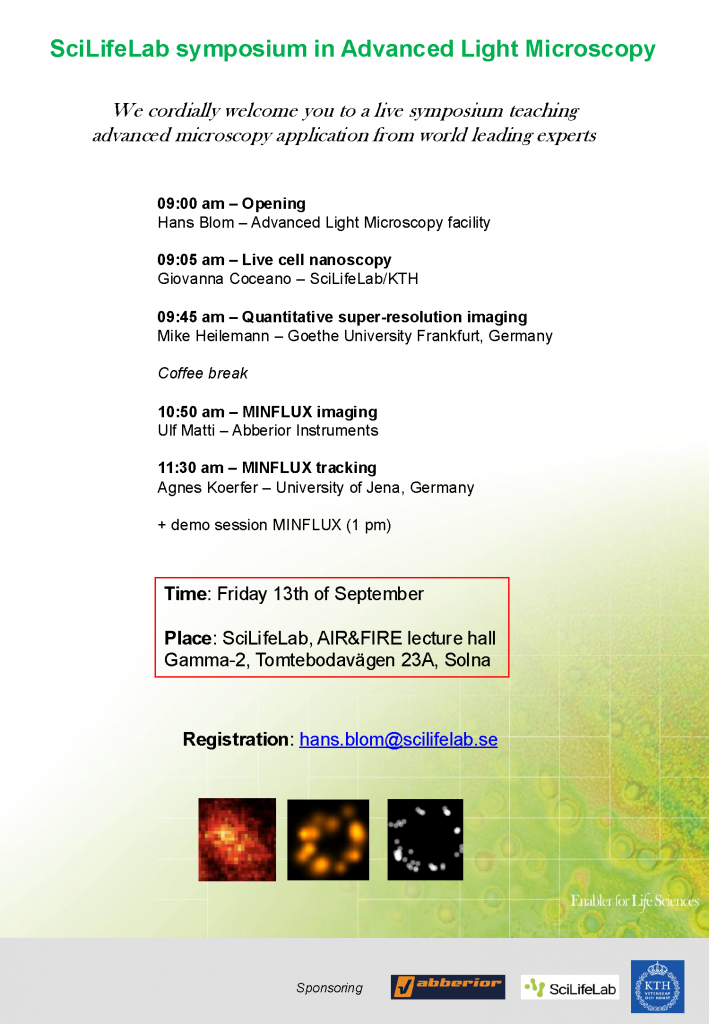
The ALM node welcomes you to a live symposium teaching advanced microscopy applications from world leading experts.
Time: September 13th, 2024
Location: SciLifeLab, AIR&FIRE lecture hall, Gamma-2, Tomtebodavägen 23A, Solna
Registration: hans.blom@scilifelab.se
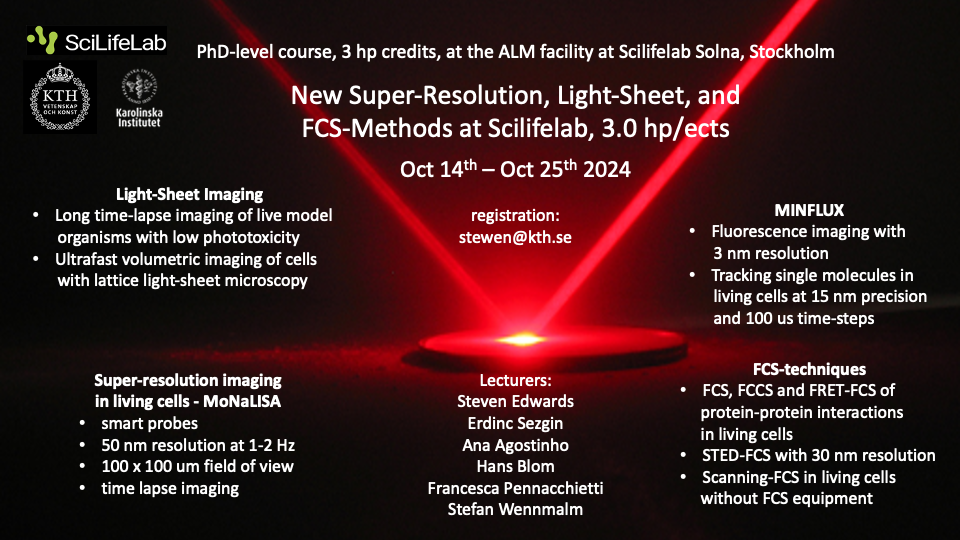
The Advanced Light Microscopy (ALM) SciLifeLab node of NMI gives a two-week PhD-level course on four new imaging and fluorescence spectroscopy techniques: Depletion-based Super-Resolution Imaging, MINFLUX, Light-Sheet Imaging, and FCS-Methods. Do not miss this opportunity if you are interested in learning about bioimaging, from molecules up to live model organisms, using advanced light microscopy.
Dates: Monday October 14 – Friday October 25, 2024
Credits: 3 hp for PhD students
Location: Gamma 3, SciLifeLab, Solna
Registration deadline: September 30, 2024
Registration: stewen@kth.se
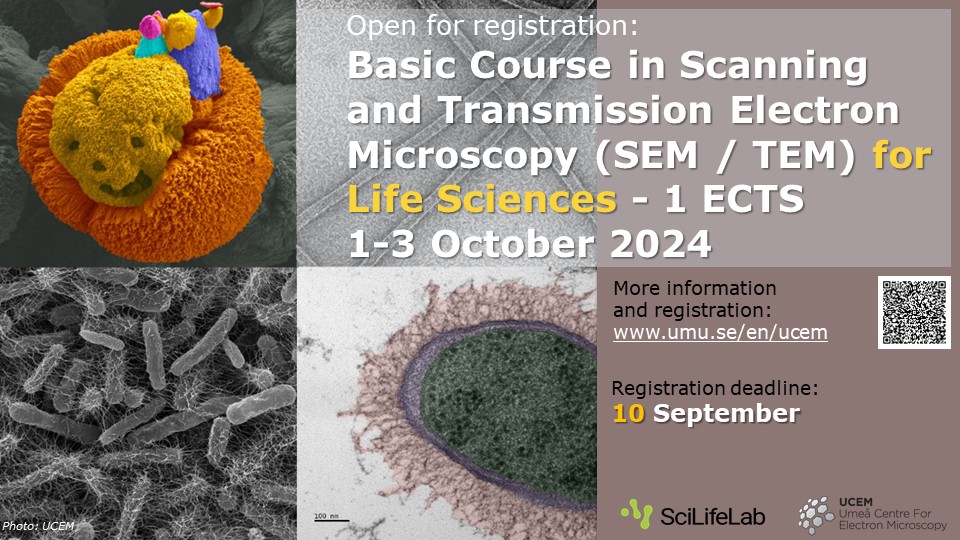
Welcome to this electron microscopy course at our NMI node UCEM in Umeå. The course covers lectures and practical demonstrations in SEM and TEM techniques. The contents include principles of electron microscopy, specimen preparation, cryo-electron microscopy and correlative light-electron microscopy. The main focus will be on imaging biological samples, but the course may also be suitable for material scientists interested in high-resolution electron microscopy.
Time of event: 1-3 October 2024
Location: Lectures at the KBC Building and laboratory demonstrations at UCEM, Umeå University
Deadline for registration: 10 September 2024
Weblink: https://www.umu.se/en/research/infrastructure/medicinska-fakulteten/u/umea-centre-for-electron-microscopy-ucem/courses-workshops-and-training/basic-course-oct-2024/
Contact email: agnieszka.ziolkowska@umu.se, sara.sandin@umu.se
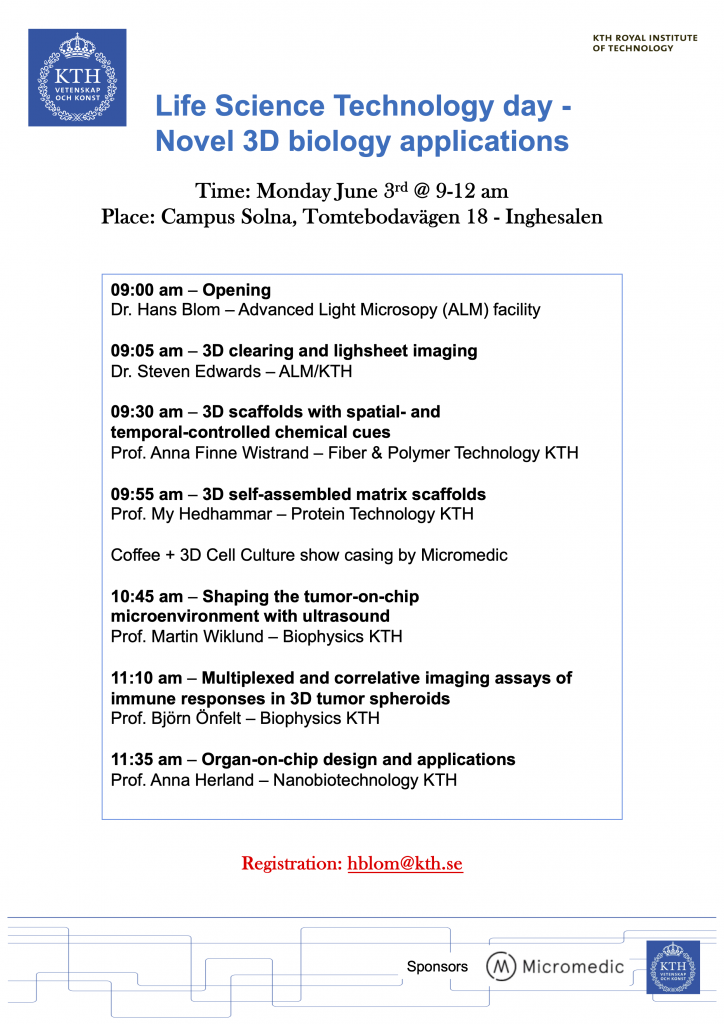
The Advanced Light Microscopy (ALM) NMI node at SciLifeLab welcomes you to a KTH networking event where leading KTH scientists present novel 3D biological sample generation and visualisation applications.
Place: Inghesalen, Campus Solna, Tomtebodavägen 18, Stockholm
Time: June 3rd, 9-12 am
Weblink: https://www.kth.se/en/om/mot/kalender/forelasningar-seminarier/life-science-technology-day-novel-3d-biology-applications-1.1328557
Registration: hblom@kth.se
This website uses cookies! By continuing to use this site, you accept our use of cookies. They help feed our microscopes!